In 2020, employers were swept up in the whirlwind of COVID-19 precaution, prevention, and preparedness. In 2021, it’s unlikely that the COVID-19 precautions will be abating, per Bill Gates and infectious disease experts; however, the focus in occupational health will likely shift to a greater emphasis on mental health in the workplace.
Mental Health Matters
Mental health, and he lack thereof, has been taking its toll on the workplace for quite some time. Many companies experience the effects of poor mental health, even if they refuse to acknowledge it.
- 10.8 million workers have some kind of substance abuse due to a mental illness or other unknown factor.
- We lose approximately 35 million workers yearly to mental illness.
- Companies lose approximately $105 billion due to lack of productivity from those suffering from mental illnesses that are not treated properly.
As everyone can attest, the effect of COVID-19 on mental health have been detrimental. When it’s stressful to go to the grocery store, have dinner with your family, or plan the first day of school, the stress has been experienced by everyone—it’s no longer stigmatized or demographic specific.
Mental Health in 2020
According to the CDC, it is estimated that 40 percent of American adults experienced at least one adverse mental or behavioral health condition during the COVID-19 pandemic, including anxiety or depression (31 percent), trauma and stressor-related disorder (26 percent), or starting/increasing substance use to cope with stress or emotions (13 percent).
Ideation of suicide also occurred among more than 20 percent of certain subgroups, such as young adults and employees defined by the U.S. Department of Homeland Security as essential to continue critical infrastructure operations.
Employers can take action
The latest generation to enter the workforce are not afraid to discuss mental health, and the effects of 2020 have made it more of a necessity than ever to keep your staff healthy. The CDC provides these tips for supporting the mental health of your employees.
- Make mental health self-assessment tools available to all employees.
- Offer free or subsidized clinical screenings for depression from a qualified mental health professional, followed by directed feedback and clinical referral when appropriate.
- Offer health insurance with no or low out-of-pocket costs for depression medications and mental health counseling.
- Provide free or subsidized lifestyle coaching, counseling, or self-management programs.
- Distribute materials, such as brochures, fliers, and videos, to all employees about the signs and symptoms of poor mental health and opportunities for treatment.
- Host seminars or workshops that address depression and stress management techniques, like mindfulness, breathing exercises, and meditation, to help employees reduce anxiety and stress and improve focus and motivation.
- Create and maintain dedicated, quiet spaces for relaxation activities.
- Provide managers with training to help them recognize the signs and symptoms of stress and depression in team members and encourage them to seek help from qualified mental health professionals.
Give employees opportunities to participate in decisions about issues that affect job stress.

.png?width=500&height=500&name=Blue%20and%20White%20Classic%20Shield%20Financial%20with%20Star%20Logo%20Design%20(1).png)


